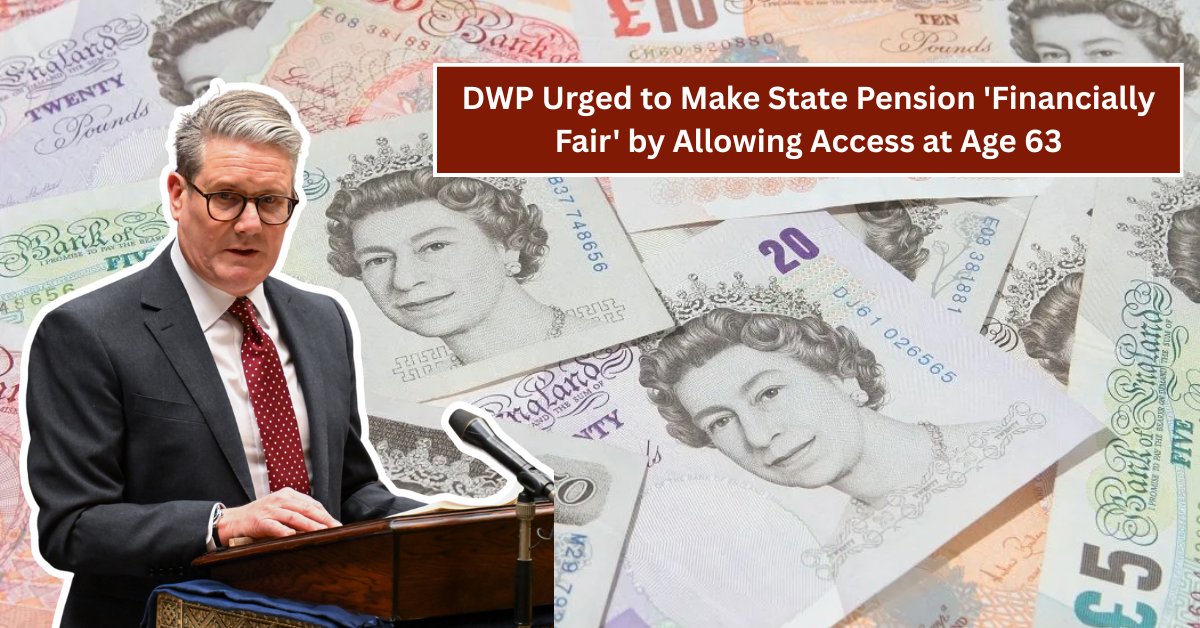The UK Department for Work and Pensions (DWP) is facing growing pressure to adjust the state pension system. Many experts and campaigners believe that allowing people to access their state pension at the age of 63 would make the system more financially fair. This change could help individuals who are struggling to plan their retirement in today’s challenging economic environment.
For many people, retiring at the current state pension age feels too late, especially after years of working hard. The idea of accessing the state pension earlier aims to give people more freedom and better financial security as they approach retirement. Let’s explore why this proposal is gaining attention and what it might mean for future pensioners.
Why Is There a Call to Change the State Pension Age?
This Article Includes
- 1 Why Is There a Call to Change the State Pension Age?
- 2 What Does ‘Financially Fair’ Mean in This Context?
- 3 How Could Early Access to State Pension Help Younger Indians Living in the UK?
- 4 Challenges and Concerns Over Lowering Pension Age
- 5 What Changes Can We Expect If the Pension Age Is Reduced to 63?
- 6 How You Can Prepare for Retirement Now
- 7 Conclusion: A Step Toward Greater Pension Fairness
Currently, the state pension age in the UK is gradually increasing and is expected to reach 67 in the coming years. This has caused concern among many workers who feel they cannot wait that long to receive pension benefits. Life expectancy, health conditions, and the length of working life are some factors making the current system seem unfair.
Many campaigners argue that people who start working early or have physically demanding jobs deserve to access their pension earlier. Allowing access at 63 could provide financial support to those who might not be able to work longer due to health or other reasons. It also reflects changing social and economic situations, considering inflation and rising living costs.
What Does ‘Financially Fair’ Mean in This Context?
When we say the state pension should be ‘financially fair,’ it means the system should balance what people pay during their working years with what they get later. Right now, some feel the state pension system benefits only a few, while many others struggle with delayed access.
Making the pension available at 63 aims to address this inequality. It allows people to plan their finances better and avoid last-minute money worries. Financial fairness also means support for those who have had less chance to save privately for retirement or who depend heavily on the state pension.
How Could Early Access to State Pension Help Younger Indians Living in the UK?
Younger Indians living and working in the UK may particularly welcome the chance to access their state pension earlier. Many take on physically demanding or lower-paid jobs to support their families back home. Accessing the pension at 63 could reduce financial stress and provide a clearer path to retirement planning.
This is also important for youth who are beginning their careers now. With uncertainty about job security and economic changes, knowing they can access a dependable pension earlier helps build confidence in their future. Early access might encourage more people to contribute regularly to the pension system.
Challenges and Concerns Over Lowering Pension Age
While the idea seems beneficial, there are some challenges. The government faces the task of funding pensions for a longer period if people start claiming earlier. This could increase public spending or lead to adjustments in pension amounts.
Some experts worry that lowering the pension age might impact the overall sustainability of the pension system. Others believe it may affect the workforce by encouraging early retirement, which could create skill shortages. These points of view lead to careful debate on how to balance fairness with financial reality.
What Changes Can We Expect If the Pension Age Is Reduced to 63?
If the pension age is lowered to 63, many things could change to support this new system. One change might be adjusting the pension amount to make the system affordable for the government. People could also be given more flexible options on how and when to use their pension benefits.
This change might also push employers and employees to rethink their retirement planning strategies. There could be more emphasis on supplementary savings and investment to fill any gaps created by an earlier pension age. Overall, it would encourage a new way of thinking about retirement.
How You Can Prepare for Retirement Now
For younger readers, it’s never too early to start planning retirement. Making regular contributions to pension schemes and understanding the rules around the state pension is important. Keep an eye on news about pension age changes to make informed decisions.
You can also explore additional savings options like private pensions and investments. These efforts will help you feel more secure about your financial future, whether or not the pension age changes. Remember, planning ahead is key.
Conclusion: A Step Toward Greater Pension Fairness
The DWP’s possible decision to allow state pension access at 63 promises to make the retirement system fairer and more flexible. It acknowledges the needs of people who cannot wait until the current pension age to live comfortably after retirement. Although challenges exist, the benefits may outweigh the drawbacks for many.
For younger generations, especially those from India living in the UK, this change could provide better financial planning opportunities. Staying informed and proactive about these developments will help everyone prepare for a secure and balanced retirement.






